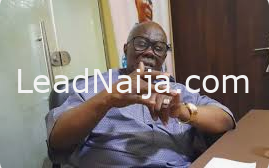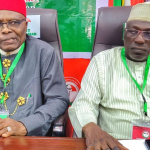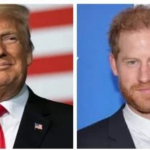In a compelling interview with The Sun newspaper, Chief Bode George, a prominent chieftain of the Peoples Democratic Party (PDP), delivered a powerful critique of religious exploitation in Nigerian politics, drawing from personal family experience to illustrate the possibility of religious harmony.
The veteran politician began by identifying what he sees as a fundamental challenge to national cohesion: “They are the biggest obstacles to national unity.” He then criticized the superficial focus on religious identity in politics, noting, “People fixate on religious differences, ‘Oh, this one is a Muslim,’ or ‘That one is a Christian’, but what does that have to do with governance?”
Drawing on his knowledge of religious texts, George highlighted the common ground between faiths: “The Bible’s Old Testament is similar to the Torah and shares principles with the Holy Quran,” he explained, emphasizing the interconnected nature of major religions.
The PDP chieftain then shared a powerful personal narrative about interfaith harmony within his own family: “My own sister married a Muslim and became an Alhaja. I personally sponsored her and her husband to Hajj.” He elaborated on how religious differences never affected their familial bonds: “She remained my sister. We attended church together, and she attended Quranic school. Did that change our bond? No.”
George concluded with a sharp criticism of political manipulation: “Yet, people use religion to divide and discriminate. The real problem is that politicians exploit these differences to manipulate the masses.”
His commentary provides a compelling perspective on the artificial nature of religious divisions in Nigerian politics, suggesting that such differences are often amplified for political gain rather than reflecting genuine societal divisions. The interview offers both a critique of cynical political manipulation and a vision of possible religious harmony, backed by personal experience.
These insights from a seasoned political figure contribute to the ongoing national conversation about religious tolerance, political manipulation, and the need for genuine unity in Nigeria’s diverse society.Read Full Details



